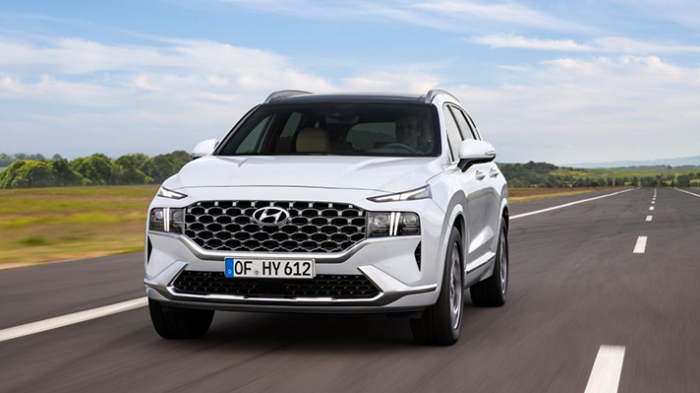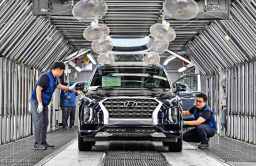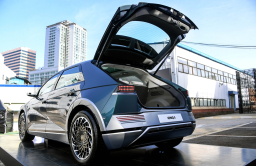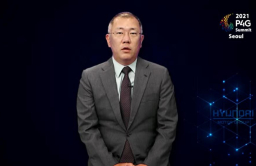-
KOSPI 2577.27 -2.21 -0.09%
-
KOSDAQ 722.52 -7.07 -0.97%
-
KOSPI200 341.49 +0.02 +0.01%
-
USD/KRW 1396 -2.00 0.14%
Hyundai tops Korean institutions' May buying list
Automakers
Hyundai tops Korean institutions' May buying list
Institutional investors turn net buyers in May for first time this year
By
May 31, 2021 (Gmt+09:00)
2
Min read
News+

In May, Hyundai Motor jumped 11% to hit almost a three-month closing high of 235,000 won ($212) on Monday, deviating from its rangebound trade over the past four months. It outperformed the broader Kospi's 1.8% gain this month.
Institutional investors turned net buyers in May, snapping their four-month selling streak since the start of the year. This month, they scooped up a net 3.3 trillion won worth of shares on the Kospi.
Between May 1 and 28, Hyundai Motor took up one-fifth of their net buying volume. During the period, they purchased a net 502.2 billion won worth of Hyundai Motor, the eighth-largest stock on the main bourse with a market capitalization of 50 trillion won.
Its sister company Kia Corp. came next on the list of institutional investors' top buying. They bought a net 379.5 billion won of Kia shares in the first 28 days of this month, according to the Korea Exchange.
Both carmakers of the Hyundai Motor Group gained momentum from TSMC's announcement earlier this month to ramp up its production of microcontroller units (MCU), chips used for vehicles, by 60% from last year’s volume.
The chip supply increase is expected to accelerate Hyundai and other carmakers' transition toward electric vehicles. Hyundai is set to unveil the electric versions of its premium brand Genesis -- G80e, GV60 and GV70 -- in the second half of this year, which would raise its valuation further.
Hyundai Motor Group is expanding its EV lineup and reducing combustion engine models. Reuters reported on May 28 that the group will slash the number of its combustion engine models by 50% moving forward.
Additionally, analysts said that a surge in used car prices globally would improve Hyundai Motor's balance sheet. In April, secondhand auto prices hit a record of $25,463 on average, about $2,800 higher than in the same month last year, the Wall Street Journal reported, citing research firm J.D. Power.
"Car production delays caused by the automotive chip shortage worldwide could become positive news to Hyundai Motor in terms of its balance sheet," said Eugene Investment & Securities analyst Lee Jae-in.
Higher used-car prices led to the higher residual value of long-term rental cars, he added.
On May 31, Hyundai ended 1.29% higher at 235,000 won, its strongest finish since March 5. Still, it is 19% lower than this year's high of 289,000 won touched on Jan. 11.
In April, Hyundai Motor reported that its first-quarter net profit nearly tripled to the highest level in four years, driven by pricey sport utility vehicles and premium Genesis models.
Write to Ji-yeon Sul at sjy@hankyung.com
Yeonhee Kim edited this article.
More To Read
-
May 30, 2021 (Gmt+09:00)
-
 Global chip crisisGlobal automakers accelerate EV push as chip shortage eases
Global chip crisisGlobal automakers accelerate EV push as chip shortage easesMay 28, 2021 (Gmt+09:00)
-
May 25, 2021 (Gmt+09:00)
-
 Market resilienceWith chipmakers in full gear, Hyundai Motor poised for rebound
Market resilienceWith chipmakers in full gear, Hyundai Motor poised for reboundMay 18, 2021 (Gmt+09:00)




